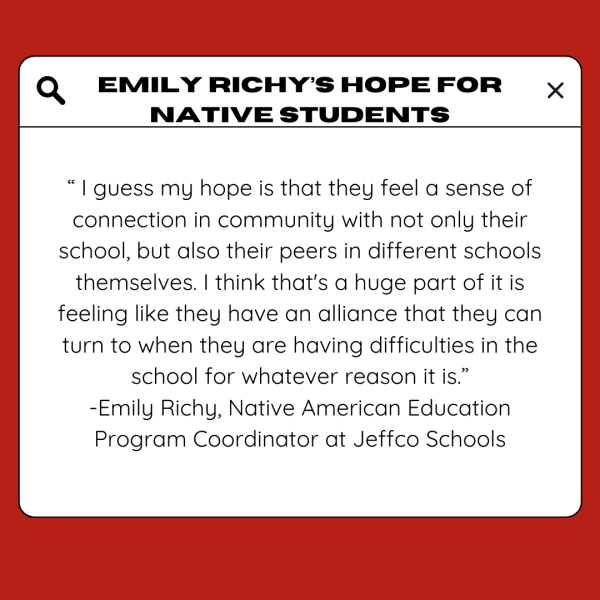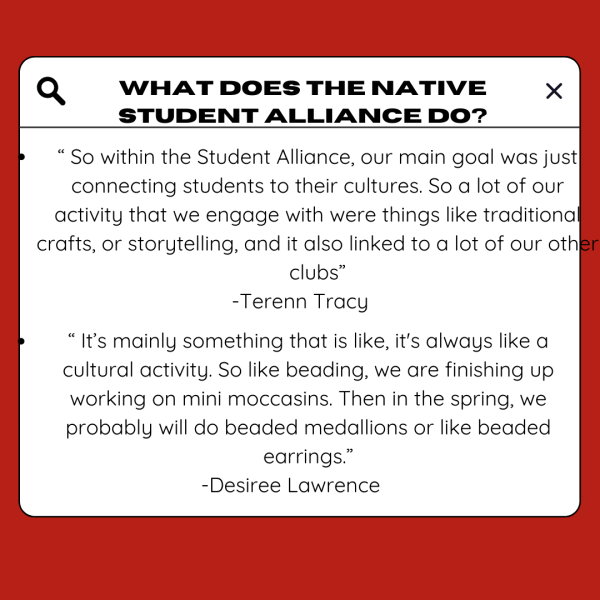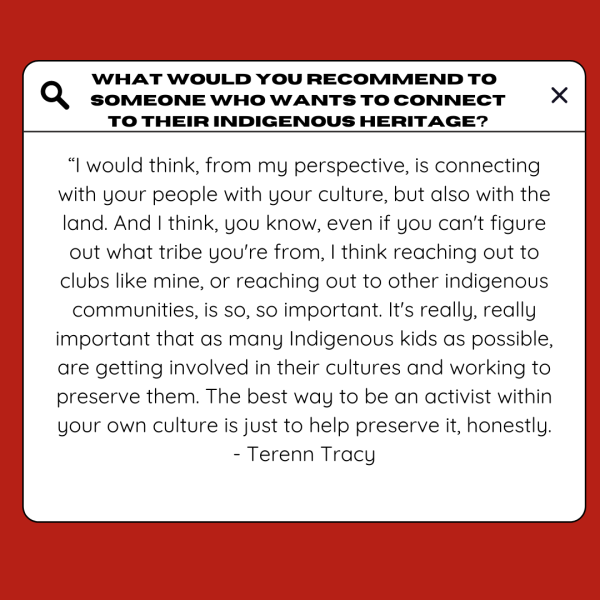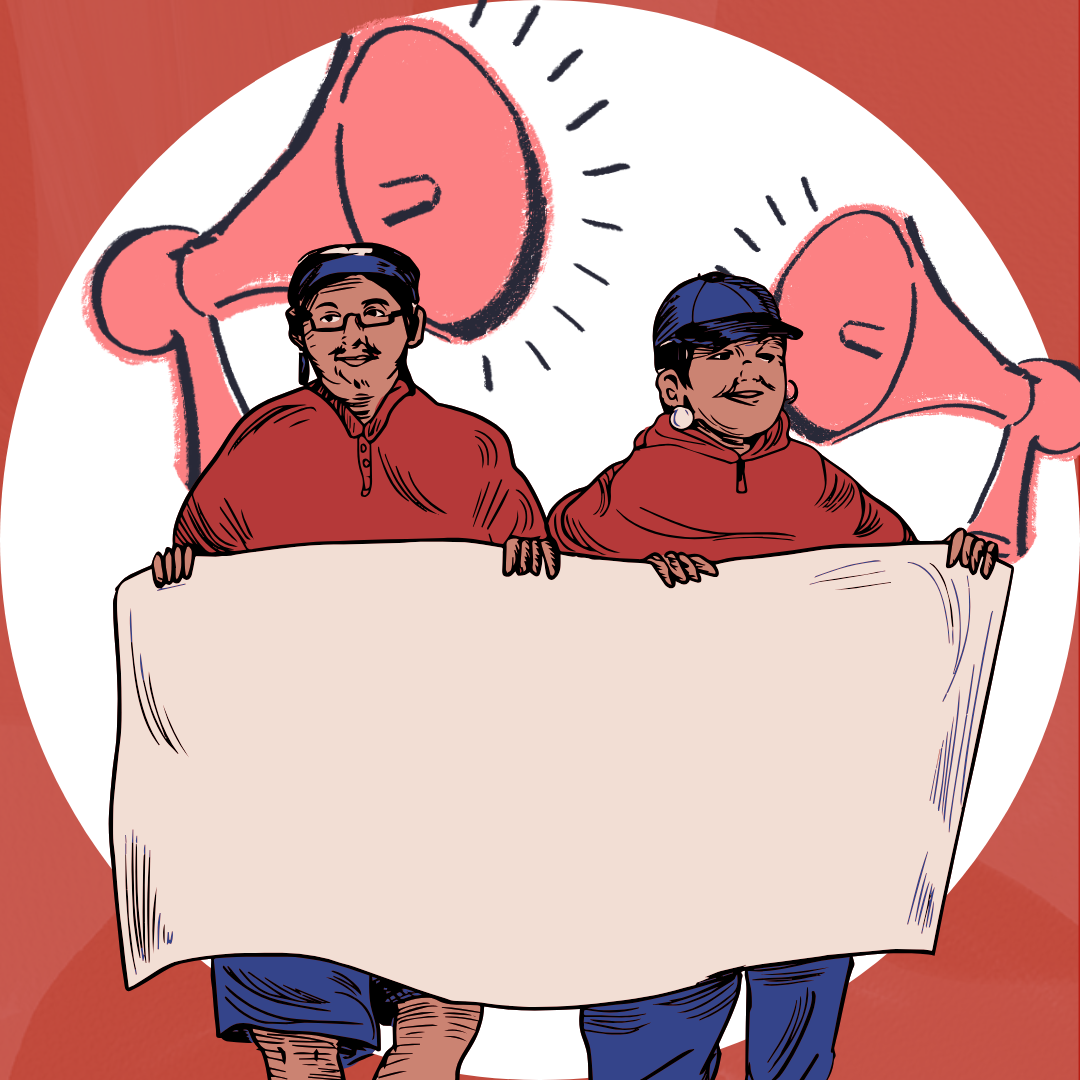In the summer of 2023, the landmark Supreme Court case of the Indian Child Welfare Act (more commonly referred to as ICWA), had the potential of being overturned after three Texas families, backed by some conservative states, argued the act imposed racial bias and violated the Equal Protection Clause of the 14th amendment making it unconstitutional. Established in 1978, ICWA aims to allow tribal nations a say in where children are being placed in cases of children being removed from their families, by giving preference to tribal nations on where the child will be placed, in attempts to preserve indigenous culture.
Indigenous voices over social media strongly advocated spreading awareness about the threat ICWA’s overturning could face to their communities. While their voices were vocal and persistent in spreading awareness of the case, for the most part they were alone in their advocacy.
“You know, unless you’re someone who is really close to a native person, or you’re familiar with our communities, so many people just are unaware of the struggles… There really is just a pervasive ignorance in a lot of our [non-native] communities. And it’s so disheartening to see…,” says Terenn Tracy, a Windy Peak Outdoor Lab intern, Arvada West High School student who is of Lakota, Isleta, and Cherokee heritage, and a proud activist for indigenous peoples.
Again and again, it has been seen in recent years how younger generations have used the voice to advocate for those in marginalized and oppressed groups. Whether it be the height of the Black Lives Matter movement in 2020, the current boycotting of Starbucks or Mcdonalds in light of the Israel and Hamas war, or even walkouts hosted right here at Arvada West High School pertaining to abortion rights and gun violence in schools, there is evidence that today’s younger generation is at least somewhat aware of social issues in the United States and the world. But when it comes to the oppression, inequalities, and high rates of violence faced by the indigenous peoples of the United States of America, generally speaking, the same can not be said.
In an anonymous survey of Arvada West High School students, participants were asked to rate themselves on a scale of one to ten when it came to their knowledge of indigenous struggles. On average, respondents said they were at a four on the scale.
“There’s not much information out there on indigenous issues that is actually accessible,” wrote one respondee who selected a six on the scale.

Graphic made on Canva by Chloe Rios
Accessibility may be a part of a larger issue when it comes to the topic of activism. Previously mentioned examples of outbreaks of activism in recent years have all accelerated out of nowhere usually by some catalyzing event, capturing the attention of America. The media coverage they receive is high, and the power of social media has benefited these movements when it comes to spreading knowledge through tools such as reposting. They also all have some element of divisiveness when the public considers their movement, which helps fuel passion. Contrary to those elements, today people widely recognize the historic treatment of Native American people to be unacceptable, and there hasn’t been a widely known event, to act as a catalyst, when it comes to demanding reform for Native American rights. As one A-West sophomore, Carmaa McCaa who is Navajo puts it, “I don’t know a single person that knows about the Indian Child Welfare Act, and it’s just something that’s never brought up. And part of that is because I think we’ve normalized it so much now that it’s like, ‘Oh, well, it’s just another thing that they’re going through,’ but you know, it’s been constant for years and years ever since… this land was colonized. And so it’s, I guess, difficult for people when they know that it’s already happening, and then it’s just another thing added on top, and they’re like ‘it’s okay.’”
The Media’s Role:
There is research to prove that the general public is aware of their lack of knowledge and that they also have a will to learn more, such as in a report from Stanford Social Innovation Review which was conducted by the Reclaiming Native Truth Project, a group of indigenous people found that 78 percent of people surveyed fall under both categories.
But having the will to learn and actually taking the initiative to learn are two very different things, and when those who want to learn go to seek information, there is minimal information available. Within that minimal coverage, there seems to be the promotion of harmful stereotypes of Native people with data being found in The Native American Media Association Spotlight Report. After analyzing stories done by big media names such as The New York Times, The Washington Post, Fox News, NPR, and The Guardian ( U.S.), the report highlights that stereotypical vocabulary such as “poverty,” addiction,” “drugs,” “alcohol,” “drums,” and others were used as a description in half of the stories and 26% of them used the words more than once.
Movies such as Disney’s Peter Pan and Pocahontas have contributed to the ideas of Native American people being “savages”, with Pocahontas even having a nearly four-minute song where the white men say the Powhatan people are “savages,” “barely even human,” and that they are “different from us which means they can’t be trusted.” Even though most people acknowledge that these ideas are not okay, that doesn’t erase the fact that movies like this have promoted these ideologies. Especially in children’s movies, these are extremely harmful because we are integrating these beliefs into the minds of children who need to be taught what is right and wrong.
A Path Forward:
Perhaps the first step towards working towards a more informed population is addressing these biases that have intentionally or unintentionally been internalized. From there, we can begin to check ourselves when these stereotypes come alive in our minds and realize when they are used in the media to help sift through what is available to the general population and what is actually accurate.
Furthermore, when it comes to seeking reliable education on Native people and what is going on in their communities, Tracy recommends, “Our number one resource for our communities is our elders. And there’s a lot of, you know, elders who have written blogs online, or things that just don’t get a lot of attention but are going to be your best resource. If you’re, you know, a non-native person looking for information on native things, asking Native people, especially elders is such a good way to learn about those things.”
Tracy continues, suggesting another way to gain education by noting that “a lot of native people, we use art and storytelling as a form of getting information to people. So things like art exhibits, displaying native art can honestly be really informative in ways that, you know, people wouldn’t expect.”
For Desiree Lawrence, a student liaison for Jeffco Public School’s Native American Education Department and the organizer for many Native Student Alliances across the district, including the one at A-West, she clarifies that when seeking out education “just because someone is native doesn’t mean you should like go to them for all the answers, because they might not know those answers… so do your own research.”

Graphic made by Chloe Rios in Canva
Education is just the root of the problem though, until we begin to actively seek out and learn about the injustices Native people have endured and are continuing to endure there is no allyship for their people. Though it is important to note that a lot of larger issues faced by indigenous communities do circle back to their historic relationship with the government, the fact that they are rightfully sovereign nations, and the general erasure of indigenous people and voices, making it hard to spark major reform.
For example, in the following weeks after the Supreme Court voted to uphold ICWA, they rejected the requests for water rights from the Navajo Nation, whose third of their population suffers from a lack of access to clean water, according to AP News. Firstly, the nation was left out of the 1922 Colorado River Compact when water rights were divided between seven different states. The Supreme Court in a 5-4 vote, rejected the requests of the Navajo Nation on the premises that the federal government never explicitly stated that they had to help the Navajo people with water rights.
As AP News reports, ‘Where do the Navajo go from here?’ Justice Neil Gorsuch wrote in the dissent that they ‘have waited patiently for someone, anyone, to help them, only to be told (repeatedly) that they have been standing in the wrong line and must try another.’
Or the Missing and Murdered Indigenous Women’s movement (MIIW) that has gained some recent traction. According to a 2016 study, the National Institute of Justice found that 84.3% of Native American women have experienced violence in their lifetimes. In the same report, the National Information for Crime Center reported that there were 5,712 reports of missing indigenous women, yet only 116 of them were logged in the National Missing and Unidentified Persons system.
Even locally, it wasn’t until August of 2021 that Colorado Governor Jared Polis revoked an 1864 act connected to the Sand Creek Massacre that called for the killing of Native Americans and the destruction of their property.
As one member of the Ute Mountain Ute Tribe known as House told AP News,

Graphic made in Canva by Chloe Rios
“There’s oftentimes the general community think of American Indians as the vanishing race, the vanishing people… ‘It gives us a place that we were important and that our lives were important.’”
Though just because these issues are with the government, it doesn’t mean that there isn’t value to being an activist for indigenous struggles.
What McCaa has previously offered about the normalization of indigenous struggles seems to be a continuous pattern in American activism culture. We advocate passionately for a little bit, but then the movement dies down. If we are to be activists, it must not be performative but a continuous fight for advocating and uplifting others; that begins with having a wider mind and a more open and caring heart. Indigenous voices are important, but they can not be the only ones, for there is work to be done.
Note from the author: This story has been in the works since October of 2023. It has been important to me to put the time and effort into this piece and have my research guided by native voices as I continued to learn more about the people at A-West, the programs at Jeffco Schools, and of course the recent struggles. I am part Native American myself, descending from the Apaches and other Southern Colorado and New Mexican tribes. This process was an opportunity for me to not only educate myself but also in some ways to connect to my heritage. I do not mean to speak for Indigenous communities, nor do I claim to be completely educated. My purpose was to shine a light on some of the bigger and more recent issues, hoping to spread awareness. There is always a first step to take towards being a more educated and understanding person, for me this was my first step.


